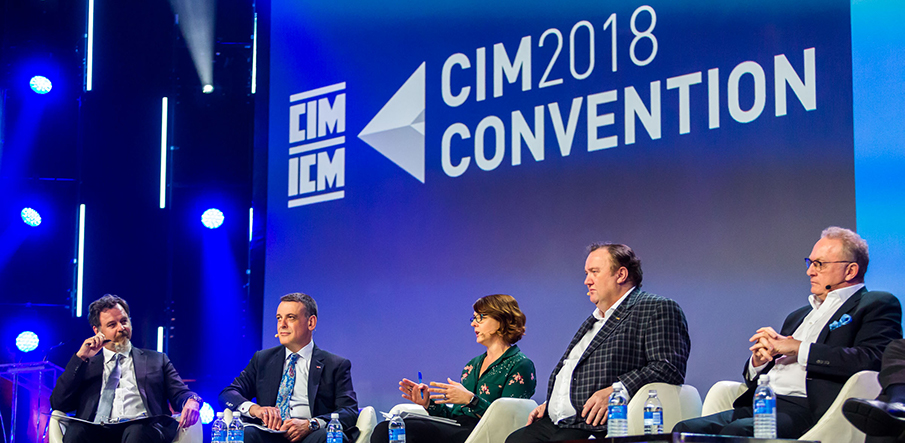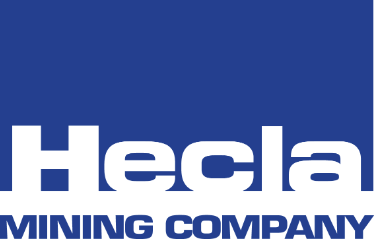08 May 2018
Investing in project development during commodity down-cycles, removing structural barriers to retaining women in the industry, and finding a new method of financing were among the discussion topics at the CIM Convention’s plenary on how mining companies can “think differently” about their business.
Despite sunny skies, the ballroom was packed and the audience was engaged in a plenary discussion on modern approaches to mining. B2Gold’s senior VP and CFO Michael Cinnamond moderated the session with panelists John Bianchini, Hatch president and CEO; Nicole Adshead-Bell, Cupel Advisory Corp. director; Sean Roosen, CEO of Osisko Gold Royalties; Clive Johnson, president and CEO of B2Gold; Leon Teicher, Continental Gold’s chairman of the board; and Johnna Muinonen, RNC’s vice-president of operations.
Below are the speakers in their own words.
John Bianchini on better preparing for commodities cycles: “From a project development point of view, we need to do a heck of a lot better. It comes down to being much more long-term players. We have to start having the courage to counter-cyclically invest in development. I know that’s hard to do and there are lots of barriers to it, but that means doing your studies early on in the down part of the cycle, and investing in tech in the down part of cycle. Those projects are much more successful when eventually executed.”
Nicole Adshead-Bell on short-term thinking in exploration: “Our society is predominated by short term-ism, and you’re seeing that in how some companies are managing their exploration strategy. One thing I’ve noticed more recently is because of pressure to produce results immediately, instead of going through years of [development work] there’s pressure to find the ‘glory hole.’ Exploration is a process. It’s not easy and randomly poking holes in the ground is not likely to get success.”
Sean Roosen on the new financing reality: “We’re fighting for shelf space on high-risk dollars. We’re now competing with weed stocks and cryptocurrencies and tech stocks in a way we never had to deal with in the past. We’ve lost that ‘casino player’ to younger, sexier stories. I would say we don’t have a lot of millennials investing with us right now and I think that’s the number one challenge: how do we reformat the exploration business to get that excitement back into it?”
Clive Johnson on managing political risk: “Fairness, respect, transparency and accountability. Those are really nice big words that sound great, but we’ve tried to live that over the last 30 years, and you have to walk the talk. Deliver on the promises that you make, and be prepared to be accountable. Do the work, and don’t do it because you have to. Do it because it’s the right thing to do. This is not your grandfather’s mining company, and what I mean by that is it’s much better than that. And it should be.”
Leon Teicher on prioritizing corporate social responsibility: “More projects are delayed or killed by CSR sustainability community related issues than by technical or financial issues, and exploration is where it all starts. When we send the geologists out there they [can] create problems that you have to deal with later. In thinking about exploration we need to incorporate the sustainability skill from square one, and that will avoid a lot of cost and problems later in the life cycle.”
Johnna Muinonen on creating flexible solutions for female employees: “Some women want to work after a baby, and some want to take time off. Some want to work a little bit, and keep their toes in. I think that flexibility, looking at how HR policies can be flexible instead of a cookie cutter approach [is important], because a cookie-cutter approach drops women, specifically because they have to make a choice.”
The recording of the plenary livestream will be available on Thursday, May 10.
Sponsored by




